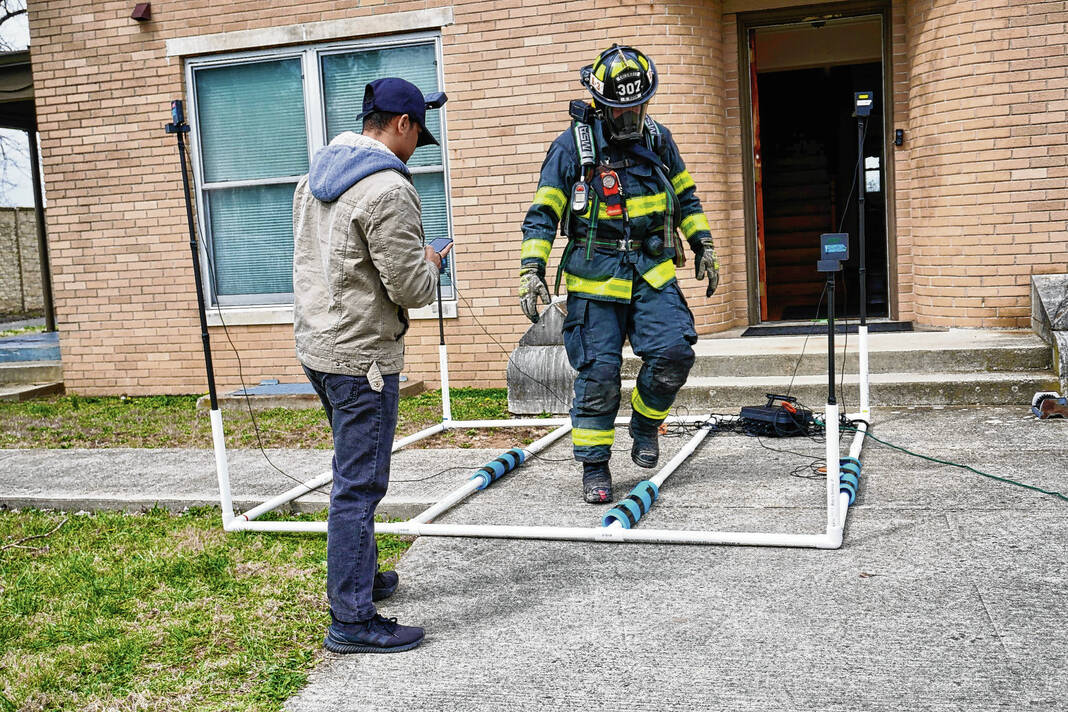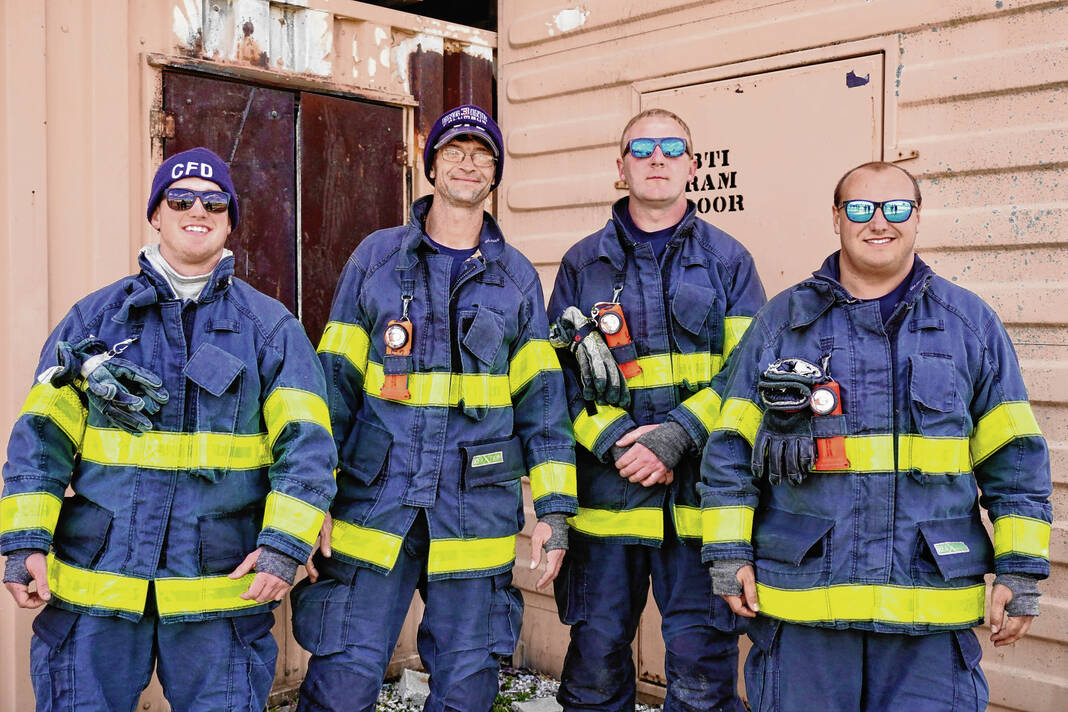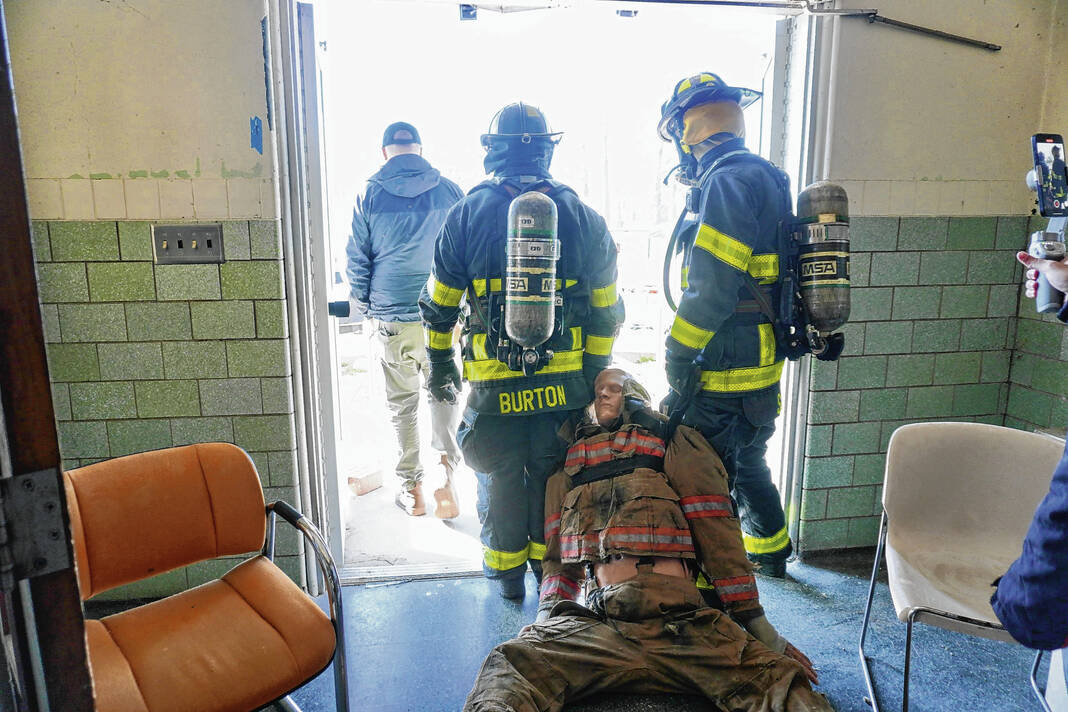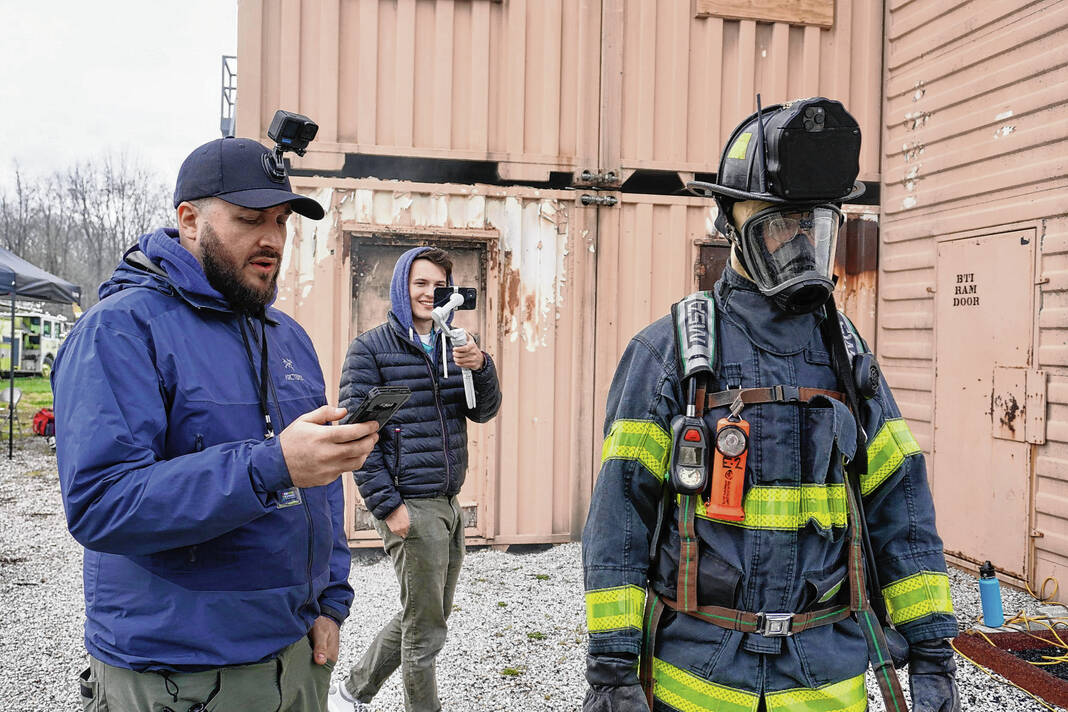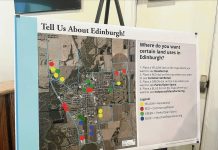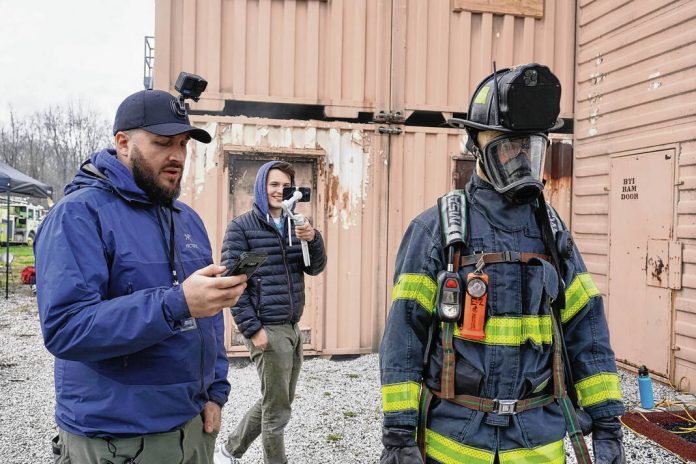
Photo provided Columbus firefighter Justin Sims prepares to participate in a simulation test at the First Responder Smart Tacking Challenge.
Four Columbus Fire Department firefighters participated in the live testing phase of a prototype technology competition designed to identify 3-D tracking technology that will enable successful tracking of first responders who are performing their duties inside of a building.
Held at Muscatatuck Urban Training Center in Jennings County in March, approximately 10 tracking teams competed in the fourth phase of the testing. Successful teams will be awarded funding and entrepreneurial support to bring their solution to market.
Members of the Columbus Fire Department that participated in the live testing included firefighters Seth Burton, Chris Moon, Justin Sims and Nikolas Zickler.
Differing from Global Positioning Systems (GPS), which provides a 2-D location with accuracy between 3 and 15 meters, the First Responder Smart Tracking Challenge is 3-D tracking technology to give first responders 1-meter accuracy in an indoor setting, said Capt. Mike Wilson, Columbus Fire Department spokesman.
Columbus firefighters provided assistance to competing teams by completing a series of scenarios that mimic firefighter fire ground operations within buildings of various sizes.
Each firefighter was equipped with a prototype tracking device and instructed to progress through predetermined waypoints within a building while competitors monitored firefighter movements and real-time location.
Columbus Fire Chief Andy Lay spoke with competition organizers and competitors about the benefit of the technology for first responder safety. “As an incident commander, maintaining accountability for our firefighters is a top priority. Accountability is particularly important when search operations are underway or in the event of a missing or downed firefighter that creates what we call a mayday situation. Being able to see precisely where our firefighters are located within a home or business is a great advantage,” he said.
Led by the Crisis Technologies Innovation Lab in the Pervasive Technology Institute at Indiana University, and funded by an $8 million cooperative agreement from the Public Safety Communications Research Division of the National Institute of Standards and Technology, the prize money will be awarded in each phase of the competition with a total of $5.6 million in prize funds awarded across five phases of the competition.
Lay said he is hopeful that the Columbus Fire Department will be invited to participate in the Fifth Phase advanced live testing set for October of this year.

